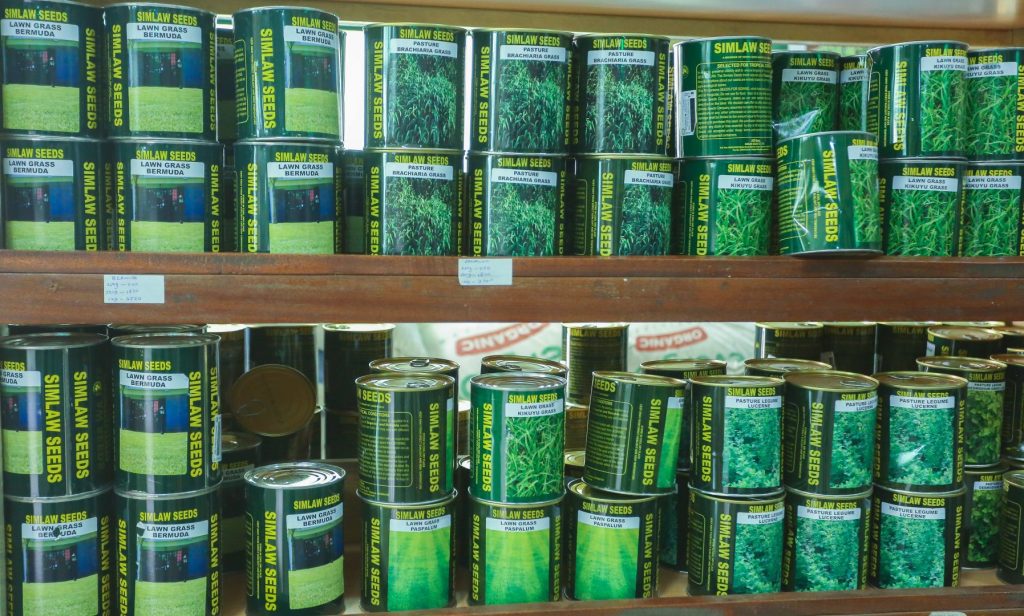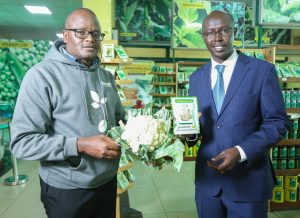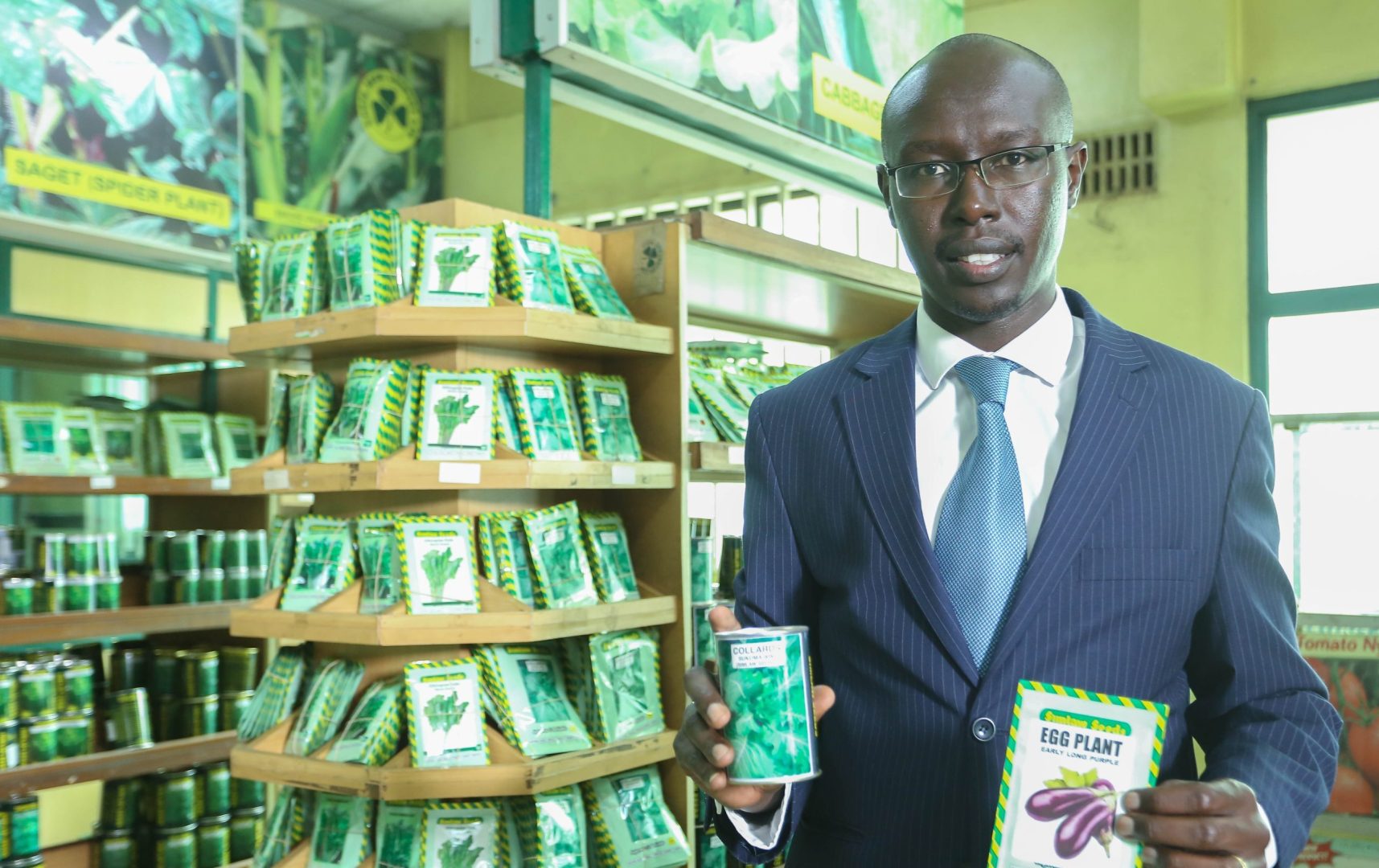In agriculture, crop production depends on the quality of seeds planted. Advancements in seed technologies have been used by seed companies to guarantee good seeds and increase agricultural productivity.
Some, like Simlaw Seeds in Kenya, have managed to keep their business afloat by evaluating models and strategies which work for them and for their consumers as well.
David Kiplagat, General Manager at Simlaw Seeds Ltd, says the seed business involves hard work and expertise.
“It involves a lot of recognition of the depth of the various genetic pools that are crossed in order to make products that are suitable for different ecological zones. As a company, we consider ourselves a key player in Kenya, in the sense that we do not rely totally on imported seeds. We produce certified seeds with ease due to the favorable climate we have,” says Kiplagat.
Simlaw Seeds Ltd is a subsidiary of the Kenya Seed Company and is mandated to produce, import, market and distribute superior and reliable vegetable seeds for commercial and domestic use.
Having started way back in 1929, the company was initially known as Simpson and Whitelaw. The company changed hands over the years and in 1979, it was bought by Kenya Seed Company. In 2002, the firm combined the two names, Simpson, and Whitelaw, and became Simlaw Seeds Ltd.
The company offers several products ranging from field crops such as maize, beans, and pulses to all sorts of vegetables, lawn grass, fruits such as watermelon, and other inputs such as fertilizers and farm tools.
Simlaw Seeds Ltd produces some of its seeds locally and imports others. Both depend on a seed’s variety as there are seeds, such as carrots, cabbages, and spinach, which cannot perform well in the Kenyan climate which necessitates importation.
For the planted seeds, variety maintenance – which is a branch of plant breeding that deals with principles and methods of breeder seed production – is carried out and once effective, a variety is released through Kenya Plant Health Inspectorate Service (KEPHIS) by producing data seeds.
The growers are then contacted and given the certified breeder seeds for further multiplication, which in turn produces seeds for commercial processing and subsequent marketing.
For the imported seeds, KEPHIS, the industry regulator, requires that Simlaw Seeds provide an application for import permit as well as a phytosanitary certificate from where the seed has been produced. It is then that they sample the seeds and issue a germination certificate to Simlaw Seeds where applicable, which then allows them to sell the now certified seeds.

The overall goal of the agricultural industry has remained the same over the years; to provide for and feed the masses. The differentiating factor has been the quality of products and the sustainability of the practices used to produce the products.
According to the Canadian Seed Growers Association, “a certified seed is the product of a production process designed to deliver specific plant breeding achievements to farmers and the food industry, hence being true-to-type.”
“It is important to note that, compared to ordinary seeds, certified seeds are inspected by recognized third-party agencies and are produced by dedicated seed growers who adhere to stringent requirements. They undergo a carefully monitored production process and have passed the quality assurance requirements of varietal purity, germination and freedom from impurities, and are ready for commercial use,” adds the association.
Due to the monitored production process and variety maintenance that Simlaw Seeds does, their seeds provide a reliable way of assessing particular traits a farmer needs in a plant as well as getting the best of the same variety every year without degradation. In an aeon of insect tolerant crops and varietal purity, a farmer can be assured that the seed he/she plants is the specific crop variety he wants to plant.
According to Thomas Kariuki, Chief Research Officer at Simlaw Seeds Ltd, they carry out seed testing in two areas.
“We test our products in an internal laboratory for elaborate analysis, checking for the germination test and carrying out a physical purity analysis. We also plant our seeds in our research farms in areas like Thika, Bungoma and Njabini, whose climates are suitable for specific crop maintenance under the different ecological zones followed by pest control which enables us to see whether the varieties planted exhibit the attributes of that particular variable,” Kariuki says.
Simlaw Seeds has had to keep up with different technological advancements in matters seeds and as an organisation in general. Being members of the African Seed Trade Association and the Seed Trade Association of Kenya, has enabled them keep up with the ever-changing seed production regulations. They also subscribe to the International Seed Federation, which represents their interests as a professional seed company at the global level.
Every industry felt the harsh impact of the Covid-19 pandemic and Simlaw Seeds’ experience was no different. The repercussions the pandemic had on human social activities made the management to become more innovative in how they distribute seeds. On November 2, 2020, they launched an e-commerce app, Simlaw Seeds, which enables their farmers, agents, or customers to buy goods and have them delivered at their convenience through courier services.

Kiplagat says they realized that the app is a great avenue to sell seeds as it gives the farmer convenience by providing an opportunity to select the product they want and in whatever quantities they want and after a few days, have their products delivered.
The management also introduced new avenues of seed distribution by partnering with Safaricom Digifarm to offer farmers a convenient and one-stop access to quality farm inputs and learning content on farming as well as partnering with One Acre Fund to train their farmers on how and what they need to grow more food and earn more money.
According to him, carrying out all the measures recommended by the Ministry of Health in terms of running organisations and reducing human contact and social distancing, enabled them to appreciate mechanization. This was because they had recently acquired seed packaging machines in their processing department, and this reduced human labour.
Customer preference is also another trend that changed Simlaw’s outlook on how markets work. “It is very interesting to see the behaviour of markets, cabbage for instance, was a top five product that actually dipped. This is because most hotels and institutions such as schools closed. We, however, saw a great uptake of indigenous products such as Sagaa (Spider Plant), as people concentrated on nutritional value from products,” says the Simlaw chief research officer.
For a company that has been inexistence since 1929, it still grapples with production challenges because of environmental stresses. Pests such as the fall armyworm have been a menace, and this has caught the government’s attention as it has been trying to fight it.
“Research is actually the driving factor of products and the responsiveness of the same to the market in terms of yield,” says Kiplagat.
Drought is another challenge and to curb this, they invest in areas that are water safe in terms of irrigation in the different corners of the country. Working with foreign producers to produce yields in case their crops fail is another way in which they have mitigated risks.
He has managed to put Simlaw’s footprints in neighbouring countries by exporting indigenous vegetables across the East African region and recently the United Kingdom. As much as it is not easy to predict how the future looks like for Simlaw Seeds, it is safe to say that they are scaling greater heights.
Locally, Kariuki added that plans to expand their market in different regions in the country are underway especially in areas they are yet to cover extensively.
This can be cemented by the fact that in both urban and peri-urban agriculture, management of water supplies has become a compelling issue, and this has led to modified small scale irrigation and plant production schemes in a bid to save water, which in turn, provides a niche market for them.
“Agriculture feeds the nation and more importantly, seeds feed agriculture. Let us all work hard to ensure that we use tested and certified seeds as this will capitalize on traceability and ensure that we are not very dependent on importation of seed,” he concludes.

 David Kiplagat, General Manager at Simlaw Seeds Ltd displays some of their products.
David Kiplagat, General Manager at Simlaw Seeds Ltd displays some of their products.









